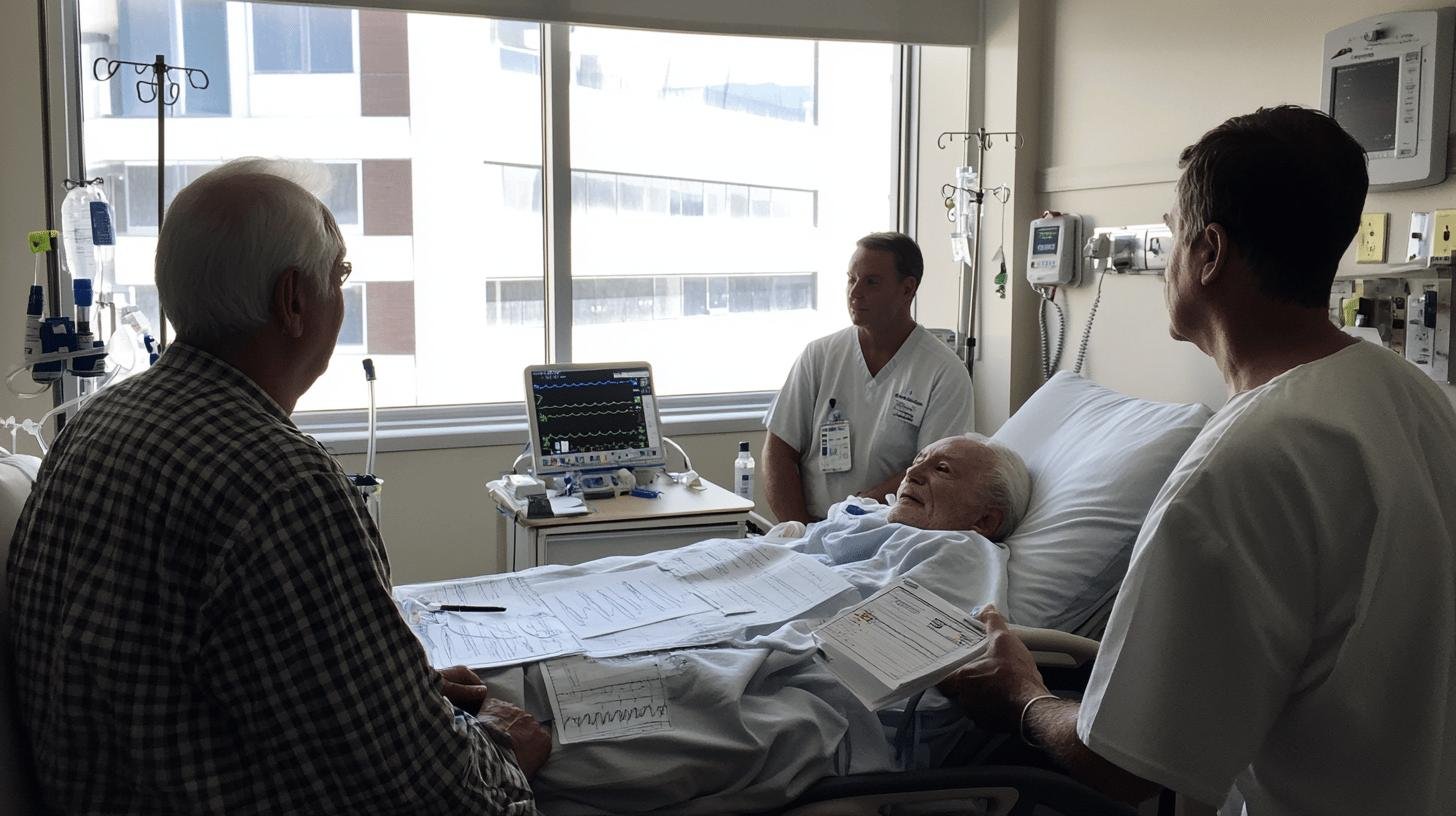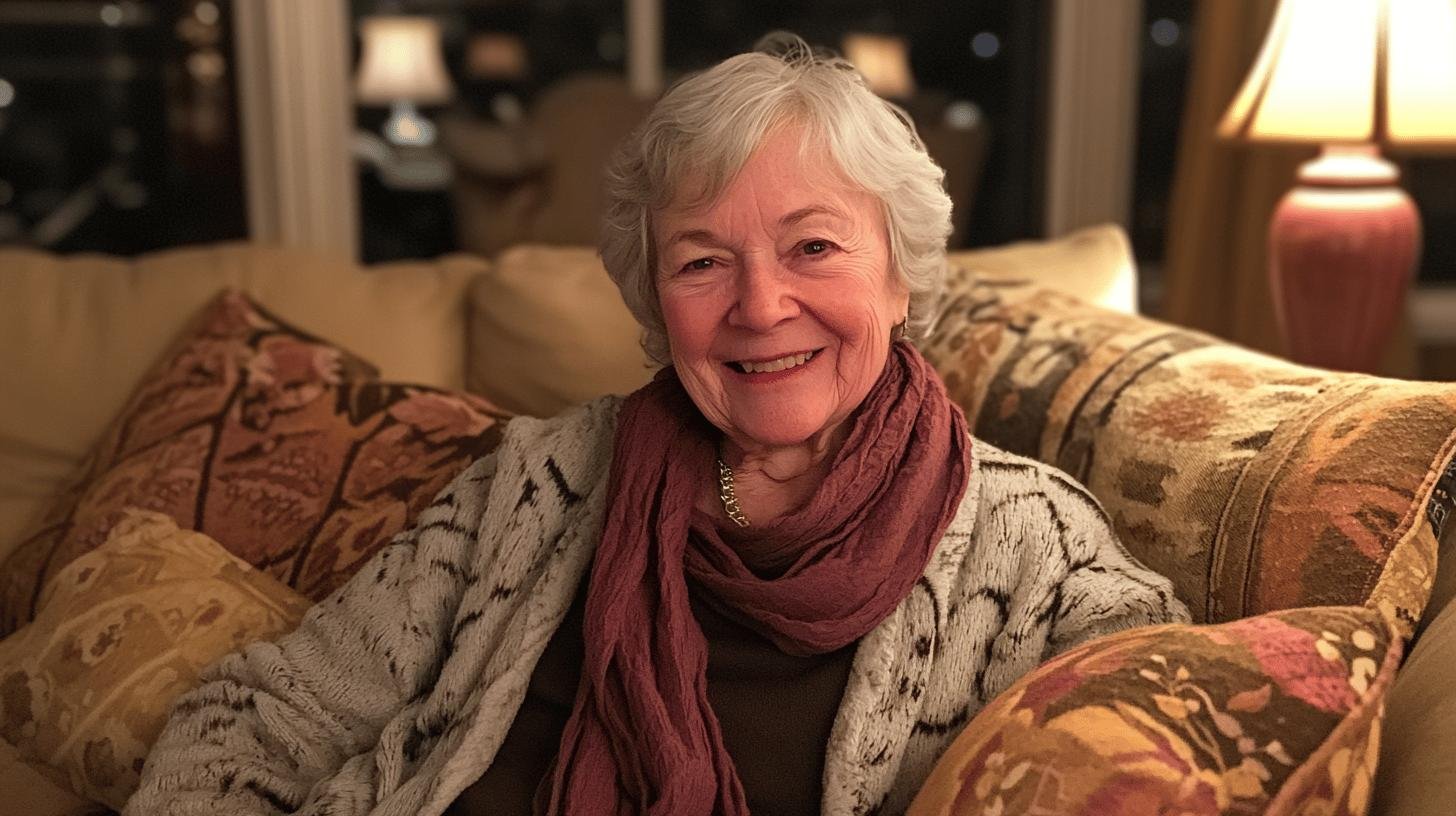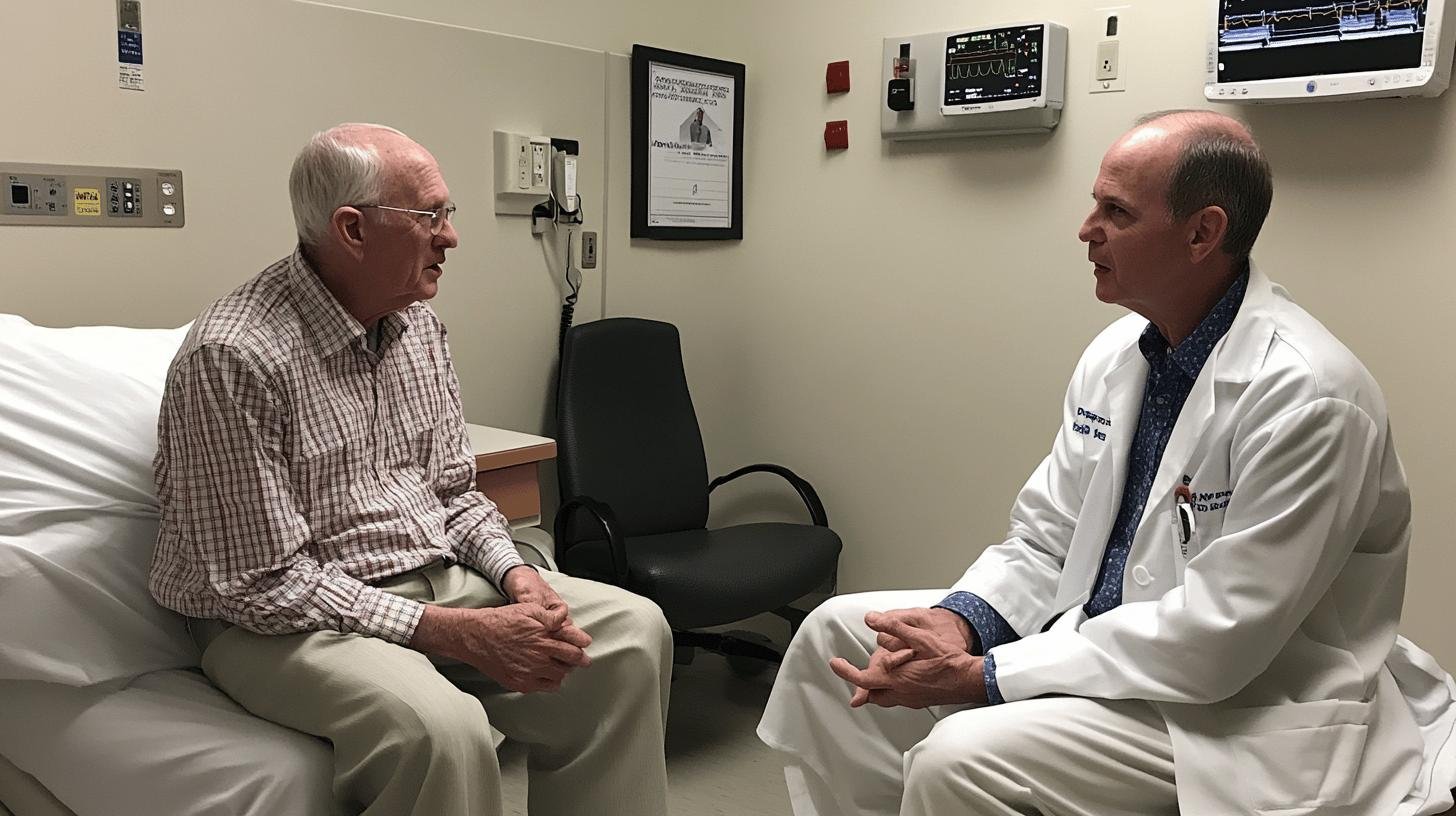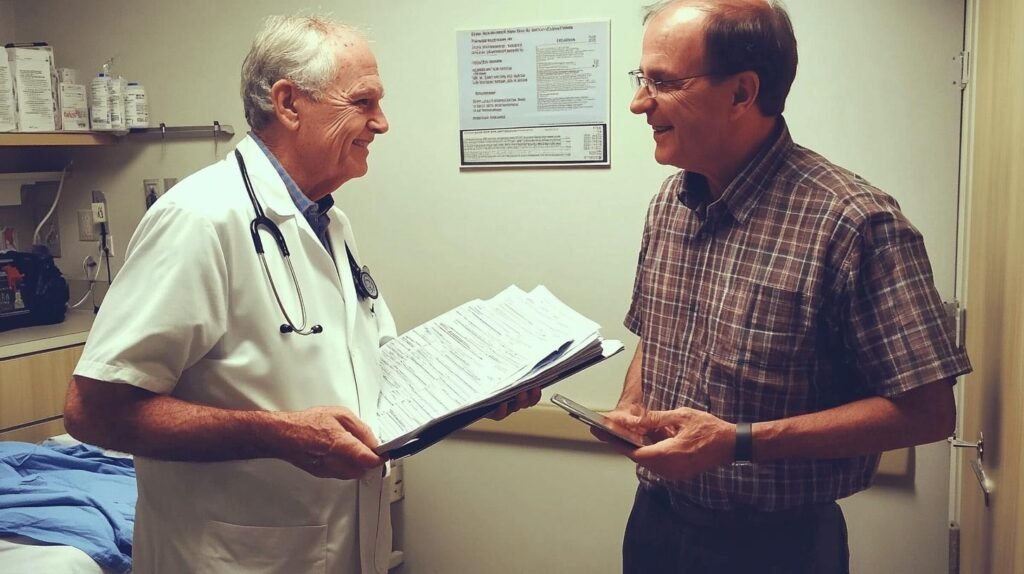TL;DR:
- Geriatric assessments are essential for tailoring cancer treatment for older patients.
- New targeted immune therapies, like Keytruda, are effective and gentler than traditional chemotherapy.
- Key considerations for elderly cancer management include overall health evaluation, comorbidities, patient preferences, and family support.
- A balanced diet, hydration, and exercise are crucial for recovery and quality of life.
- Emotional support from family enhances patient well-being and survival.
- Direct primary care (DPC) offers affordable, personal healthcare, easing financial burdens.
- Managing common side effects through personalized care improves quality of life.
- Clear communication about treatment plans helps align care with patient goals.
Why is it that when our loved ones age, cancer seems to play a more significant role in their lives? This isn’t just a random observation—it’s a reality many families face. A different approach is required in the care and management of cancer in the Elderly. Think of it as customizing a perfect playlist for a special occasion—it needs to fit just right.
We’re exploring essential strategies, starting with geriatric assessments and exciting new therapies. It’s about giving our elderly the best care while respecting their needs. Ready to see how a tailored approach can make all the difference? Let’s explore these vital approaches together!
Understanding Elderly Cancer Care and Management
Geriatric assessments are crucial for older cancer patients. They offer a comprehensive evaluation of their physical, mental, and functional abilities—a health check-up on a whole other level! By understanding these aspects, doctors can tailor treatment plans that fit perfectly. New targeted immune therapies, like Keytruda, are also transforming cancer treatment. They’re becoming more effective and gentler on our elderly loved ones.
Key considerations in elderly cancer management include:
- Evaluating overall health beyond age
- Assessing comorbidities
- Aligning treatment goals with patient preferences
- Exploring newer, age-friendly therapies
- Recognizing the importance of family and support
Remember former President Jimmy Carter? At 90, he beat metastatic melanoma with Keytruda and emerged cancer-free! Cases like his instil hope and affirm these modern approaches’ effectiveness. It’s not just about adding years to life but adding life to years. Here, family involvement and social support are crucial for navigating these tough waters.
Exploring Elderly-Specific Cancer Treatment Options

Geriatric oncology is like a superhero squad for older patients. It focuses on the unique challenges seniors face when dealing with cancer. With age comes wisdom and, of course, some health hurdles. These specialists work hard to tailor treatments for older folks. Why is this important? One size does not fit all in cancer care.
Traditional Chemotherapy vs. Newer Therapies
Traditional chemotherapy is an old cancer treatment guard. It’s effective but tough on the body, often causing side effects like nausea and fatigue. For elderly patients, this can be particularly challenging.
Newer therapies are the cool newcomers. Targeted immune therapies are among them. They target cancer cells directly, sparing healthy ones. This means fewer side effects and a gentler experience for seniors—a switch from a bumpy ride to a smooth sail.
Targeted Immune-Therapies
Targeted immune therapies like Keytruda are modern cancer treatment rockstars. They work with your immune system to fight off cancer, offering effective and kinder treatment. For older adults, this means less nausea and more life to enjoy.
In the past, trials often overlooked older folks, missing valuable treatment insights. Thankfully, that’s changing. Age-specific research is making treatments safer for our golden-agers. The future of elderly cancer care looks promising!
Importance of Nutrition and Exercise in Elderly Cancer Patients
Why is a healthy diet vital during cancer treatment? Simple: good nutrition helps your body stay strong, fight infection, and recover quickly. For elderly cancer patients, weight loss can be a concern, affecting health and life expectancy. So, eating well is about maximizing healing and thriving.
Consider these dietary practices:
- Maintain a balanced, nutrient-rich diet
- Ensure adequate protein intake
- Stay hydrated
- Limit processed foods
- Consider supplements if advised by a doctor
Now, what about exercise? Is it safe for older cancer patients? Absolutely! Simple activities like a daily 30-minute walk can do wonders. Exercise helps maintain muscle strength and enhances quality of life. It’s not about marathons; it’s just keeping your body moving to boost energy and spirits. So, lace up those sneakers, and let’s get moving!
Psychological and Emotional Support for Elderly Cancer Patients

Facing cancer can be as daunting emotionally as it is physically, especially for elderly patients. While fear of cancer looms large, many older adults worry more about cognitive decline and losing independence. The anxiety of forgetting daily tasks or needing help with basic needs is a heavy burden, leading to depression and anxiety. Understanding these emotions is crucial for effective support.
Social support is hugely important. It can impact elderly cancer patients’ survival as much as some medical treatments. Family and friends who listen, help with tasks, and provide companionship boost morale and foster positivity—like having a personal cheerleading squad.
Caregivers can enhance emotional support with these tips: Encourage open communication about feelings and fears. Help maintain routines for a sense of normalcy. Promote hobbies they love to boost their mood. Be patient and empathetic, as everyone processes emotions differently. Consider professional counseling if needed. These steps can provide a lifeline, helping you confidently navigate the emotional whirlwinds.
Direct Primary Care as a Cost-Effective Solution for Elderly Cancer Care
Direct primary care (DPC) is revolutionizing affordable, stress-free cancer care for the elderly. Imagine healthcare where you pay a regular fee without insurers getting involved. Sounds dreamy, right? DPC offers comprehensive, personalized care, a game-changer for elderly cancer patients needing more time and attention from doctors.
Benefits of Direct Primary Care
Why is DPC appealing? It’s affordable. A monthly fee covers many services, so there are no surprise bills. This helps families budget better, making healthcare costs predictable.
Plus, DPC offers top-notch personalized care. You’re not just a number. Doctors can spend more time with each patient, tailoring treatments to individual needs, which is crucial for elderly patients with complex issues. You get longer appointments, direct communication, and a well-informed doctor.
Family Involvement in Care Plans
Family members play a vital role in DPC by being actively involved. They can:
- Attend Medical Appointments: Track treatment plans and ask questions.
- Communicate with Doctors: Share insights on the patient’s routine and health.
- Organize Medications and Appointments: Manage prescriptions and follow-ups.
- Provide Emotional Support: Offer comfort and companionship.
- Encourage Healthy Habits: Help maintain a balanced diet and regular exercise.
DPC not only eases the financial burden but also improves care quality. With predictable costs and personal attention, elderly patients focus on living life fully and cancer-free. It’s a win-win for patients and families, ensuring the best care without financial strain.
Managing Comorbidities and Side Effects in Elderly Cancer Care

Geriatric assessments help manage comorbidities by predicting how treatments might affect elderly patients. They evaluate physical, mental, and functional health to foresee chemotherapy toxicities and complications, allowing doctors to minimize risks. This means fewer side effects and a smoother ride for patients.
Here’s a quick guide to managing common side effects:
- Nausea and vomiting: Use prescribed antiemetics
- Fatigue: Rest and engage in gentle activities
- Pain: Implement pain management strategies
- Cognitive challenges: Practice mental exercises
- Loss of appetite: Encourage small, frequent meals
Personalized care is crucial because each older patient has unique health challenges. A one-size-fits-all approach won’t work. Personalizing care aligns with the patient’s needs, preferences, and health status; it improves outcomes and quality of life. It’s about making each patient feel seen, heard, and cared for on their journey.
Enhancing Quality of Life for Elderly Cancer Patients
How vital is clear communication in elderly cancer care? It’s like using GPS to navigate treatment. Open talks with healthcare providers about expectations, side effects, and personal goals ensure everyone is aligned. This clarity helps craft a treatment plan that matches the patient’s preferences and realities. Setting realistic goals means focusing on enhancing life quality, not just extending it. This empowers patients to make informed decisions about their care.
Consider these lifestyle changes to boost life quality:
- Implement fall prevention strategies
- Maintain regular contact with healthcare providers
- Stay socially engaged with family and friends
- Focus on a balanced diet and hydration
- Prioritize mental health through counseling or support groups
Family and caregivers play a crucial role. They’re unsung heroes, offering emotional and practical help. Encouraging social interaction, managing daily tasks, and attending medical consultations make a big difference. Their involvement ensures the patient gets comprehensive care and reinforces vital emotional support during treatment. By fostering a supportive environment, family and caregivers enhance the overall quality of life for elderly cancer patients.
Final Words
Being in the know about the care and management of cancer in the elderly is empowering. From understanding geriatric assessments and exploring treatment options to embracing nutrition and exercise, we’ve covered a lot of ground.
Navigating this journey isn’t just about choosing the right treatment. It’s about enhancing quality of life, managing side effects, and ensuring emotional support. The newer therapies offer promising results, especially when paired with a supportive network.
Focusing on personalized care can create a more hopeful and improved experience for elderly cancer patients.
FAQ
Q: What is the maximum age for chemotherapy?
A: The maximum age for chemotherapy isn’t fixed. Treatment depends on individual health, cancer stage, and quality of life considerations, not just age alone.
Q: Is chemotherapy recommended for elderly patients?
A: Yes, chemotherapy can be recommended for elderly patients, but it’s essential to personalize the approach based on health, potential benefits, and side effects.
Q: When is chemotherapy not recommended for elderly patients?
A: Chemotherapy isn’t recommended when risks outweigh benefits, such as in poor overall health or when it’s unlikely to improve quality of life.
Q: Is there an age limit for cancer treatment?
A: There’s no strict age limit for cancer treatment. Decisions are based on individual health status, cancer type, and treatment goals.
Q: What are the side effects of radiation treatment in elderly patients?
A: Common side effects in the elderly include fatigue, skin irritation, and appetite loss. However, side effects vary based on overall health and treatment area.
Q: How to treat cancer in elderly patients?
A: Treating cancer in the elderly involves evaluating overall health, considering personalized treatments like newer therapies or surgery, and balancing quality of life.
Q: What is the life expectancy of a person with Stage 4 cancer?
A: Life expectancy varies widely for Stage 4 cancer based on cancer type, overall health, and treatment response.
Q: What do cancer patients need most?
A: Cancer patients most need a strong support network, compassionate care, clear communication with healthcare providers, and effective pain and symptom management.
Q: What are common coping strategies for cancer patients?
A: Common strategies include seeking emotional support, maintaining a positive outlook, engaging in relaxing activities, joining support groups, and practising mindfulness or meditation.

